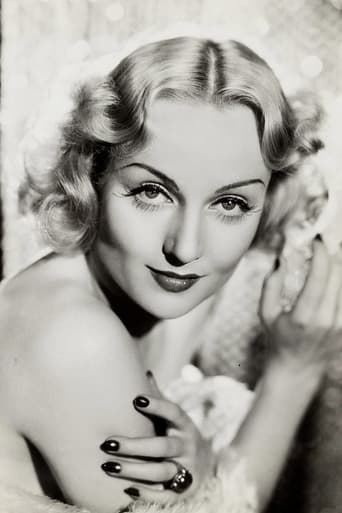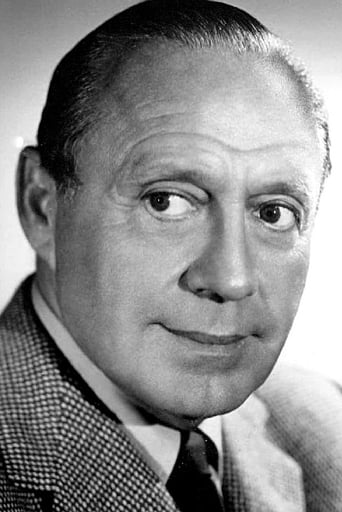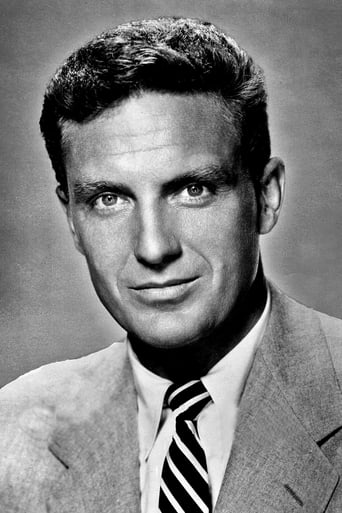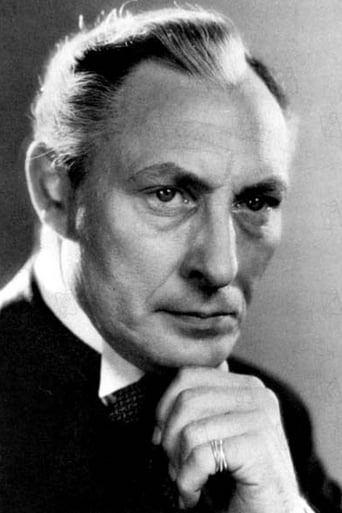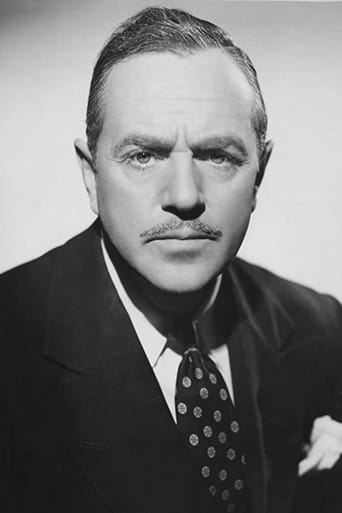Claysaba
Excellent, Without a doubt!!
CommentsXp
Best movie ever!
Comwayon
A Disappointing Continuation
RipDelight
This is a tender, generous movie that likes its characters and presents them as real people, full of flaws and strengths.
pyrocitor
If you're one of the many who sneer that contemporary comedies play too much on offensive shock value, try this on for size: an American comedy, released only months after the country had shipped troops over to join the war, with the image of Adolf Hitler casually strolling down the street, only moments after his moustached grimace would have graced the screen in the newsreels. Indeed, between the film's brazenly audacious topicality and the horribly tragic pre-release death of its leading lady, it almost boggles the mind to imagine any audiences chancing a viewing of Ernst Lubitsch's To Be or Not To Be, let alone laughing at it. Thankfully, the benefit of hindsight reveals a true classic waiting in the wings. Taking its place alongside Chaplin's The Great Dictator as one of the bravest (and, by proxy, funniest) films of the era, To Be or Not To Be is a savage satire and comedy of errors, wordplay, and mistaken identities worthy of Shakespeare himself, in addition to being a palpably tense and engrossing war film in its own right. If the notion of making an irreverent wartime satire while at once being sincerely deferential to the fears and hardships of the war might seem contradictory, it's a paradox that Lubitsch embraces full steam ahead. The genius of To Be or Not To Be is its being equal parts comedy and war film, vindicating the struggles of overseas troops while employing laughs as cathartic levity from the fear and uncertainty surrounding them. Appropriately, Lubitsch plays the claustrophobic, paralyzing outrage of the encroaching invasion of Poland and the nailbiting suspense of spying within the Nazi ranks to the hilt, while simultaneously lampoons the blustering bureaucratic ineptitude of a Nazi force fumbling to uphold their own doctrines, often side-by-side within the same scene. The film's screenplay is deftly intricate, with enjoyable meta-Shakespearian plays on disguises and mistaken identities seamlessly blending the strains of espionage and comedy. Still, Lubitsch is the master of the 'verbal repetition as punchline' gag, with several slow-burning bits (ranging from initially innocuous lines of dialogue to Benny's hysterically cringeworthy rendition of the titular soliloquy) building from chuckle-worthy to uproariously hilarious in tandem with the film's steadily mounting tension. And, amidst the beats of irreverence and reverence (and moments of shocking, jarring darkness), Lubitsch leaves room for heart. Although the film's 'secret love' subplot between Lombard and Robert Stack's heartthrob pilot plays as a tad histrionic, the clarion sentiment Lubitsch invests into the film's overall agenda is far more resonant. Above all else, the film serves as a galvanizing wartime call to action: a bold parable to the propensity of every citizen to combat oppression, regardless of profession (or even competence). Here, the goofy dysfunctional troupe of actors are held as equally worth of heroic valourization as Stack's matinee idol pilot by being willing to lay down their lives to combat the Nazi uprising. It's an empowering testament to the human spirit that rings true without the artifice of propaganda, and, while lacking the infectiously rousing power of Casablanca's 'La Marseillaise,' Lubitsch's film is equally uplifting, albeit in a quiet and fundamentally sillier way. Carol Lombard's tragically untimely swan song performance is truly one for the ages. Commanding the screen with effortlessly affable ease, she infuses the film's tenser sequences with palpable stakes and tension, while weaving in the reprieve of a mischievous twinkle in her eye to break the ice and invite laughter back into the frame. Jack Benny is similarly magnificent as "that great, great actor, Joseph Tura," being as reliable a repository of laughs in his subtly scathing facial expressions as his perfectly rapid-fire banter and quipping. Stanley Ridges is perfectly smooth riddled with menace as a suave Nazi spy, while the wonderful Sig Ruman blusters and sputters to jubilant perfection as a perennially outwitted Nazi officer. Minor quibbles of pace and tonal balance aside, To Be or Not To Be is a remarkable juggling act, and as enjoyable as it is a triumphant feat of irreverent wartime defiance. Ticking dual boxes of being one of the most resonant and memorable comedies or war films of the Classical era, Lubitsch's film is an eminently revisable time capsule of the best gallows humour of the WWII era. Ah, what the hell - let's do one for the road: "SCHUUUULLLTZ!!!" -9/10
lasttimeisaw
An enthralling and ebullient double bill of two versions of TO BE OR NOT TO BE, Lubitsch's Black & White masterpiece, also famous for being Carole Lombard's swan song before a plane crash brought her away from this world at the prime age of 33, and Mel Brooks' (almost) faithful color remade (although the director title falls on the head of his longtime collaborator Alan Johnson) starring him and his wife Ms. Bancroft. It is the same story being transcribed under two different palettes, the remake owes its tongue-in-cheek drollness greatly to the screenwriter Edwin Justus Mayer of the 1942 version since many one-liners are copied verbatim, both versions are abounding with witty caricatures of Hitler and his Nazi regime, embellishes a tall order in the wartime Warsaw with conspicuous burlesque, a Polish acting troupe's collective endeavour to hunt down a German spy and a subsequent flee from war zone to England, during which a crucial tool is that our hero, the ham actor Joseph Tura (Benny) / Frederick Bronski (Brooks), has to playact different characters, from the spy professor, a Nazi colonel and even Hitler himself (in the remake), to bluff his way out; meanwhile he is also vexed by the budding romance between his actor wife Maria (Lombard) / Anna (Bancroft) and a young aviator Lt. Sobieski (Stack) / Lt. Sobinski (Matheson). But there are also apparent differences which can bear out why Lubitsch's original is a much better piece of work, taking the opening sequences for example, Lubitsch starts with a voice-over narrating an unusual happening in Warsaw before WWII, Adolf Hitler is spotted on the street, then a following revelation reveals that it is after all an act, Hitler is played by a character actor who tries to test his resemblance by walking among the mass, what a pleasant surprise! But in the remake, Mel Brooks doesn't adopt this route, instead, he opens with a vaudeville number SWEET GEORGIA BROWN with Bancroft, a fairly impressive stunt but fails to match Lubitsch's ingenious gambit, later audience will discover, one main reason behind this alteration is that there is no role of the character actor who resembles Hitler in this version, as Brooks himself will disguise as Hitler in the final escape scam, so probably it is a sacrifice to fulfil Brooks' own ego to enlarge his part as the star.For most part, the silver-screen magnetism of the original is beguilingly outstrips the remake's more mundane touch, and being a well-intended fairytale, the mundane touch is unfortunately an impediment particularly in the elongated escape plan, the entire operation feels preposterous with the all the chase (don't let me start on the doggie Mutki's eleventh- hour jump) and what happens to the real Hitler in the theatre, he doesn't feel absurd when clearly no actors are on the stage to perform? In the original, this passage is fast-paced with a whimsical take of the fake Hitler ordering two pilots to jump off the plane without parachutes, to mock Nazi's blind obedience.With all my respect to Brooks and Bancroft, but in the remake, they are just too old for their roles, egregiously jarring is Brooks as young Hamlet in his ridicule titular monologue, seriously? I don't consider myself as an ageist, but this is more than a farce to swallow. Bancroft is two-and-a-half decades past her prime as a seductress in THE GRADUATE (1967, 8/10), her comedic bent can never pass beyond the slinky postures. OK. we get it, it is a family business, let the profit kept within one's own turf. However, a big thumb-up for the remake to introduce an openly gay character Sasha (Haake), Anna's dresser, into the plot, in order to carry through the side-splitting wisecrack "how can a theatre survive without Jews, gays and gypsies?". Also Charles Durning usurps an Oscar-nomination for the remake as Col. Erhardt, but having watched the original first, his farcical rendition feels a shade forced compared with Sig Ruman's effortless spontaneity.In the original, the Lombard-and-Benny pair forms a more organic liaison thanks a lot to the retro flair, she is a classic lady with glamour and dignity, he is somewhat childlike but self- consciously over-proud of his acting, their bickering is crammed with spark and tease, even Robert Stack's handsome pilot is dreamier in the vintage silhouette. All in all, it might be unfair for the remake to be viewed immediately after the original, but also the double-bill viewing is a telling corroboration of why vintage classics can obtain their timeless appeal, nostalgia aside, they are absolutely one-of-a-kind in their visual tactility, their characters' mannerism and the streamlined narrative tactics, if you are into it, you cannot get enough of it, as for the remake, maybe it is just not vintage enough, nothing we can do about that, as least for now.
wes-connors
It's August 1939 in Warsaw, Poland. A theatre group led by popular stage actress Carole Lombard (as Maria Tura) and her hammy husband Jack Benny (as Joseph Tura) rehearse their funny Nazi play "Gestapo" – eventually, they're ordered to cancel the comedy due to the risk of offending Adolph Hitler, the German dictator then invading countries and disposing of their Jewish citizens in concentration camps. However, they are allowed to continue performing Shakespeare's "Hamlet". During the performance, Ms. Lombard agrees to meet handsome young fan Robert Stack (as Stanislav Sobinski), when Mr. Benny begins his soliloquy "To Be or Not to Be…" A bomber for the RAF, Mr. Stack fancies himself in love with Lombard. She enjoys the attention, but warns Stack she is a married woman. When Hitler invades Poland, Stack returns to Britain. There, he discovers a plot to exterminate the Warsaw resistance. Stack parachutes to Poland and involves Lombard, Benny and their theatre company in an effort stop the Nazis...Deftly directed by Ernst Lubitsch, "To Be or Not to Be" was unusual in that it treated the Nazis in a farcical manner. Funny Nazis during World War II did not amuse everyone. Echoing this film's repeated "Heil Hitler!" salute, the popular TV series "Hogan's Heroes" was criticized for finding humor in the subject – three decades later. Also a downer, Lombard tragically died in a plane crash before this, her last film, was released. Her performance is marvelous. Standout co-star Benny and everyone involved can count "To Be or Not to Be" as a career peak. In 1983, the film received a high profile re-male by Mel Brooks' company. While not superior to this version, Mr. Brooks' film was quite enjoyable. It did correct a minor flaw in this version – plot transitions aren't always smooth. For example, Stack appears in Lombard's bed after a long run around Warsaw; without a clue about what is happening, we see her take over his mission. By all means, see both versions – but start with this one. Laughter is still the best medicine.********* To Be or Not to Be (2/15/42) Ernst Lubitsch ~ Carole Lombard, Jack Benny, Robert Stack, Sig Ruman
MisterWhiplash
To Be or Not to Be is a film that carries the real horror and dread of Europe facing the threats and devastation of Hitler and the Nazis, and never forgets that, but is also a light, screwball comedy about the art of performance and the enjoyment we all get knowing someone is getting something over on another guy. Lubtisch's filmmaking and comic timing moves like a precise slab of butter (if that's a weird analogy), smooth and on point all the time.It follows a Polish theater company that see a the Germans invading, bombing their town, and the two stars of the company played by Jack Benny and Carole Lumbard, embroiled in a plot with a Nazi-leaning professor and even going up to Hitler himself. Nevermind they don't have Polish (or even most German) accents, they don't bother pretending on that front ironically considering the trickery on hand. This is meant to be a piece of world war two theatricality that can and does endure because it deals with showmanship, actor ego (from Benny with his Hamlet to the side characters trying to get Shylock just right) and playing a character as it's main focus (if there's any modern film that owes It's debt to Lubitsch and how people put on ruses in such high stakes it's Inglouious Basterds, down to a climax in a theater full of Nazis).And as funny as Jack Benny is, especially when his character reacts to that dear of a bomber pilot who has the hots for Carole Lombard, I think Lombard really makes this even better than expected. She's exquisite, ferocious, precocious, sexy, and yet terribly serious about her craft and the people she loves, plus the theater itself. You see just charm and grace radiating off her, and yet she completely gets how to make Mary always reacting and figuring things out. Benny is the big wonderful goof of the movie, while Lombard is the star.Its sublime entertainment and I only regret not seeing it sooner; Mel Brooks made a remake in the 80s which is good but nowhere near the impact of this picture. Just the scene with the Germans marching into town and Lubitsch's cut aways to the citizens looking on in shocked-but-passive disbelief makes it a must see alone.




